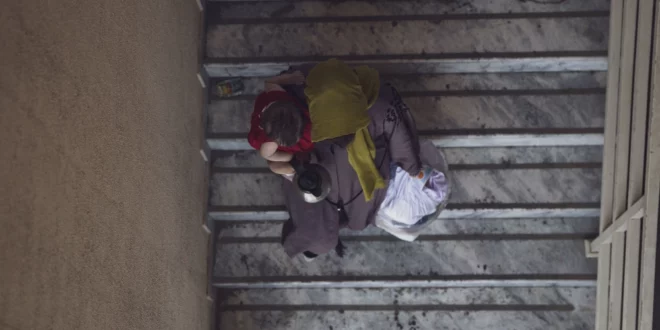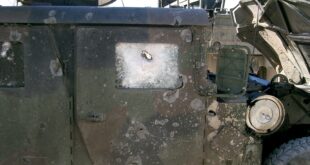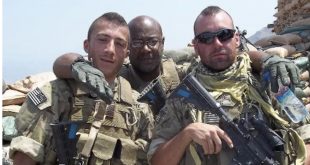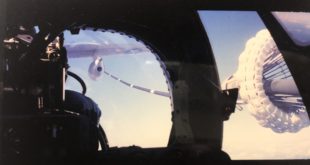by Susan Katz Keating
“The Taliban are behind my door.”
The whispered words came through the phone in the pitch of night, hours after Kabul fell on August 15, 2021. My friend “Hakim,” a man I had been trying from afar to help leave Afghanistan, called me from inside his not-so-safe house in the city. He was one of what would become a flood of Afghans who found my pal Brad and me, sending us their documents, their passports, and most of all, their desperate pleas for help. We didn’t have access to aircraft, to snatch-and-grab teams, nor to U.S. government officials who could launch a rescue. But we were Americans; and that, to our imperiled friends, meant everything.
READ MORE about the Taliban in Afghanistan
For several months I had been talking to Hakim about the history of Afghanistan. And then that history took a powerful twist; and in doing so, threw Hakim and his family into danger. The situation was so dangerous for them that I am not using his true name. It was a name that increasingly got my attention, as I started to gameplan with Hakim how to help him leave the country.
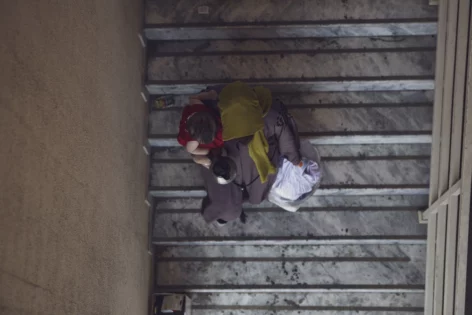
On that night after Kabul fell, I had fallen asleep waiting to hear from Hakim – and now, just before 0300 on the U.S. east coast, I woke up fast. His voice was quiet, calm, and deadly serious.
“They are here,” Hakim said.
I am not an exfil specialist. I am a journalist. Yes, I’ve been in hot zones and tight spots, particularly during the Troubles in Northern Ireland, or while covering turmoil in Dubrovnik, Boston, or Washington, D.C. – none of which involved me doing rescue ops. But when Afghanistan began to fall in the wake of the chaotic U.S. withdrawal from that country, I learned that Afghans I knew and cared about were trapped and in grave danger. Among them were Hakim and his family. I wanted to help, but didn’t know how.
Along came my American friend, Brad.
A longtime security specialist, Brad Lowe is someone you would want in your corner if you’ve been kidnapped, and not want to encounter if you are the kidnapper. He’s tough, savvy, and resourceful – and, I learned by happenstance, was trying to get his own friends out of the falling Afghanistan. If he could help his friends, I thought, maybe he could help Hakim. I called Brad and explained Hakim’s situation, and asked if he could help. Right away, he agreed.
“Let’s get his info,” Brad said. “Letters, documents, anything he has that can help.”
I felt a measure of hope. Brad was seasoned. He knew how to do this.
Brad first got involved in the Afghanistan exodus after he read reports that the Taliban were taking over numerous towns without opposition.
“I messaged an Afghan who worked for the company I did to see if he was safe,” Brad said. “He messaged me back almost immediately. And with that message I was involved up to my eyeballs 20 hours a day, seven days a week for the next three-plus months.”
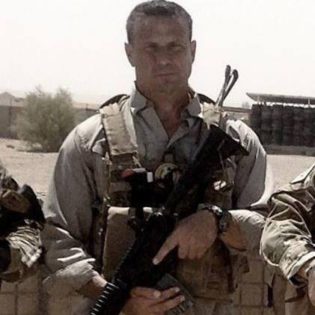
The experience came with some surprises.
“The guy I first messaged told me he was in Kandahar, and he was afraid and in danger,” Brad said. “But he was waiting for the Americans to come rescue him. I knew then this was not going to be easy; that these people had no grasp on reality.”
Brad in Ohio sent a difficult message to the friend in Kandahar: “I told him no one was coming to save him and his family. He was on his own.
“He was devastated,” Brad said. “He begged me to help him; me, an American 7,000 miles away. He wanted to know if he should wait in Kandahar or try to load his family of six onto a bus and make it to Kabul.”
That, too, elicited surprise.
“My first thought was, there’s a bus to Kabul?” Brad recalled. “My second thought was, here I am sitting comfortably in Ohio. And I need to decide if I should put a family on a bus, a decision that could get them all killed, or to have them stay in Kandahar and assume the Taliban will leave them alone. He was not going to make the decision himself. I sat there staring at my phone pondering the absurdity of the fact I was making the decision that could kill six innocent people.”
Within 12 hours, another Afghan contacted Brad.
“He was in Kabul and wanted me to decide whether his wife should stay in Kandahar or travel in a taxi to Kabul in hopes of getting on a flight,” Brad said. “My first thought was, there are taxis running to Kabul? My second again, was how do I decide the fate of this man’s wife? A woman alone traveling in a warzone, risking being stopped by people who might kill her simply because she was traveling alone.”
Other Afghans, meanwhile, began asking me for help. Soon my inbox was overrun with pleas, and with copies of vital documents. Brad and I told our Afghan contacts that we were not in charge of anything, and only could give advice that may or may not be accurate. That was good enough for the contacts. Their number kept growing, and sending documents – and, Brad recently reminded me, “no paperwork at all for the 12 surprise relatives.”
We worked on helping Hakim. He had a wife and several young children, including an infant. I was concerned about the postpartum mother, and about all the children. As long as the airport in Kabul remained open, we knew they had a chance to evacuate safely. The challenge was to get Hakim and his family into the airport before the city collapsed.
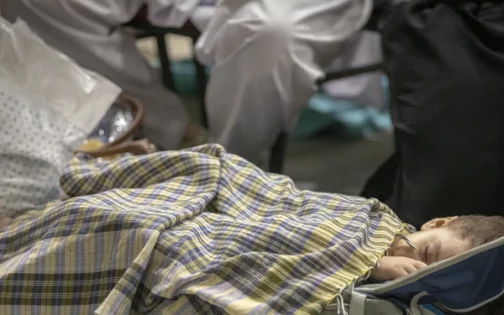
It happened faster than we expected.
“They will behead us.”
On August 14, Brad asked Hakim if there had been any change in the security situation in Kabul.
“I think if the Taliban capture Kabul no change, just beheading us,” Hakim answered.
I called Hakim.
“The situation is extremely bad here,” he said. He was worried about his wife and children. He asked me to please contact my Army friends who could be in a position to help. I did. They, too, were being inundated with pleas.
My phone logs from those days show call after call from Afghanistan – some from people who now are safe, and others from people I never heard from again.
There came a flurry of messages between me, Brad, and Hakim.
“Is it quiet near you Hakim? I’m getting reports on fighting in Kabul,” Brad wrote.
We learned from Hakim that Jalalabad fell.
“They’re closing to Kabul,” he said. “Very soon they will enter to the city.” Only three provinces out of 34 had not been captured, he said.
I spoke again on the phone several times to Hakim. In each conversation, the knot in my stomach grew. I heard young children in the background. The baby cooed, or sometimes cried. With so many little lives at stake, Hakim kept his cool when talking to me. He never once sounded panic-stricken. But it was clear that he needed help, and fast. We strategized what he would do, what he would carry, and when he would make his move.
“Things are pretty manic”
Overnight, the situation deteriorated.
“Any fighting near you now?” Brad asked in the early morning hours.
“Not yet,” Hakim responded. “I think Taliban enter to Kabul from West Side. Not officially confirmed.” Shortly afterwards, he told us: “Bad situation started in Kabul. People fleeing. Very close some gunfight. Things are pretty manic.”
Another Afghan contacted me to say that a Taliban mullah had issued a fatwa on the Afghan security forces, and that everyone “from the beginning minister to the last soldier should be massacred.” No one should survive. The mullah decreed for these forces: “There is no place to live in Afghanistan.”
Hakim sent me a message: “Those who have connection with Americans are now leaving.”
Shortly after 0600 on the 15th, Hakim wrote in haste: “Taliban enter to the presidential palace.” Then: “Some people are looting public and personal wealth. Terrible situation. Some looters are on the way.”
Hakim went outside, and made a video of the street scene in Kabul. The road was jammed with cars, many of them honking their horns, and weaving through traffic. People racewalked along the sidewalk, many toting suitcases or talking frantically on cell phones.
Kabul fell.
“Be ready”
The airport was overrun. Taliban fighters began detaining people on the streets of Kabul. Hakim prepared for his moment. It became more and more difficult to find it. Shortly before 0300 on Aug. 16, he called.
“Taliban are behind my door,” Hakim whispered. “They are here.” The tone in his voice was haunting.
“Have they come inside?” I asked.
“Not yet. They will.”
I envisioned my friend and his wife and their newborn baby, and all of their children. I did the only thing that was in my control at the moment. I prayed.
Miraculously, the Taliban moved on.
At daybreak, Brad sent a message for Hakim: “Be ready.”
There came another flurry of messages about documents, the situation inside Kabul, and conditions at the airport.
And then… nothing. Hakim went silent. He didn’t call. He didn’t pick up the phone. He didn’t respond to messages. I stopped trying to reach him, in case my phone calls would alert the Taliban to his hiding place, or would prove that he had an American friend.
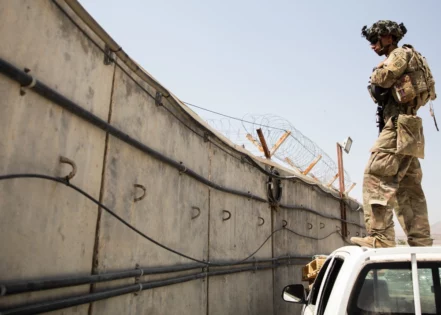
Brad reminded me that the situation was chaotic enough that people lost their cell service, or their batteries ran out of juice. But we both knew the truth. Hakim quite plausibly could have been captured or killed. I scrolled through the photos he had sent of his children. I wondered if they were safe, or if they still had a father.
Days went by. And then came a phone call from a strange number. At that point, I was picking up any call from a non-U.S. country code. I steeled myself for the desperate plea that surely would come.
It was Hakim!
I was overjoyed to hear his voice on the line. He and his family were safe. They made it out of Afghanistan. I didn’t ask for details; it wasn’t safe to discuss them on an open phone line. The only thing that mattered was that the family got out. I heard the children in the background, laughing and playing, so I knew it was true. It was one of the best phone calls I had received in a very long time.
Brad and I tried to help other Afghan contacts. Many got out safely. I heard from them at various waypoints along their travels. Others I lost touch with.
Shifting back, and pressing on
I shifted back into journalist mode. I had been talking to members of the Panjshir Resistance. I continued talking to them. I wrote about their fighters who remained in the mountains.
I wrote an exclusive story citing their leader, Ahmad Massoud.
“I will never surrender to the Taliban,” Massoud told me, communicating from his hideout in an undisclosed location. “I will fight them.”
Brad pressed on with the rescues. He teamed up with our mutual friend, retired Navy SEAL Commander Dan O’Shea. A tireless advocate for those who need help, Dan was one of the early members of Task Force Pineapple, spearheading efforts to get Afghan Commandos who fought and served alongside U.S. and Coalition SOF operators out of Afghanistan. The group did remarkable, breathtaking work. Later, a bill was introduced in the U.S. Congress to recognize their efforts with a Congressional Gold Medal.
Brad and Dan spent months on the evacuation efforts. They never quit. They saved lives.
“It’s impossible to say how many we got out,” Brad said. “Every now and then, I still hear from someone who needs help.”
I have remained in touch with Hakim, and also with members of the Resistance.
From time to time, I talk to Dan and Brad about those intense days in the summer of 2021.
Brad told me about one man in particular he tried to help. He and Brad talked often, before the Taliban seized power. The man worked at the Kabul airport.
“He told me the company he worked for would not let anyone leave, as Kabul was expected to fall soon and quickly,” Brad said. “He wanted me to advise him on what he should do. I told him to not leave the airport under any circumstances.”
The man told Brad that he had a family.
“I instructed him to tell his family to come there and sneak them in before the airport is closed,” Brad said. “There was no plan to close it at that time, but I knew it soon would be. He did not take my advice. He left the airport to retrieve his family.”
What happened to the man?
“He never got back in, and remains in Afghanistan to this day.”
Susan Katz Keating is the publisher and editor-in-chief of Soldier of Fortune.
 Soldier of Fortune Magazine The Journal of Professional Adventurers
Soldier of Fortune Magazine The Journal of Professional Adventurers


